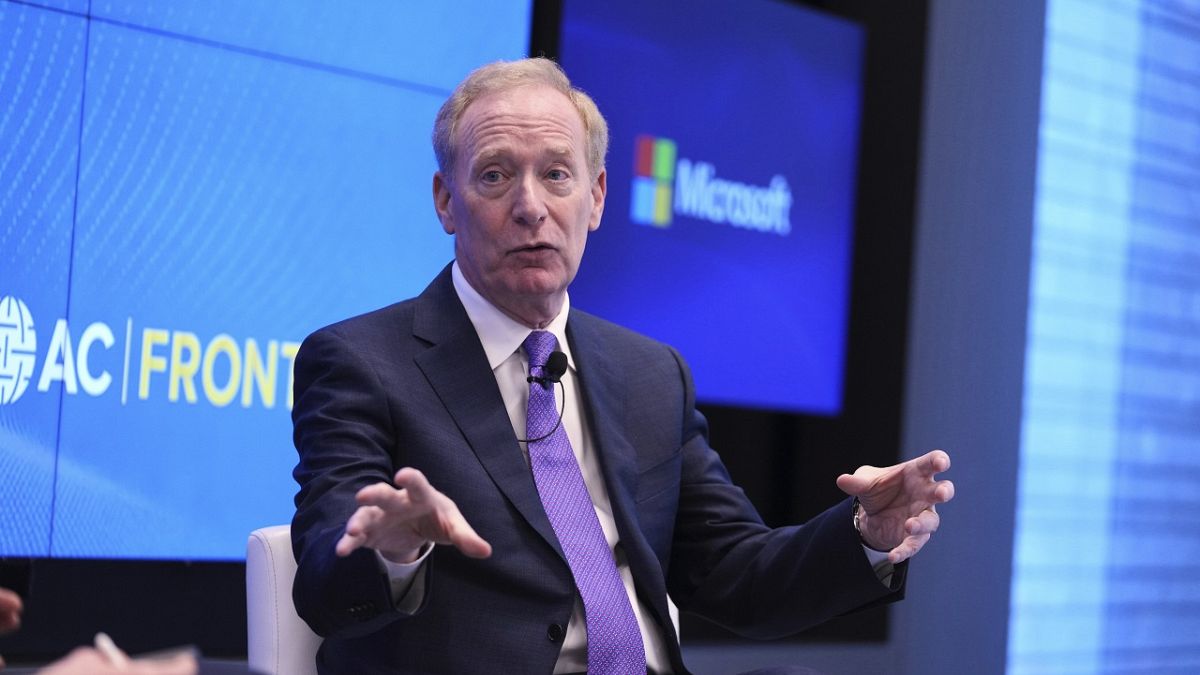Microsoft is prepared to go to court to back up its contractual commitments to protect Europe’s digital resilience in times of geopolitical volatility, the company’s president has said.
Brad Smith pledged during an event in Brussels on Wednesday to protect Microsoft’s European customer data and “agreed to challenge any government demand for EU public sector or enterprise customer data where we have a legal basis for doing so.”
“We have included that commitment in our customer contracts and backed it up with a promise to compensate customers if we disclose their data in violation of EU law,” he added, saying that the company believed any violation “very unlikely”.
Microsoft has previously filed lawsuits against both the Obama and the first Trump administration for failing to protect data of customers and employees.
Questions have arisen about the protection of EU personal data under the new US administration of Republican President Donald Trump.
The German Interior Ministry for example recently expressed concerns about the future of the data transfer agreement between the EU and US after Trump vowed to review, and possibly repeal, all the decrees signed by his predecessor.
Smith’s commitment on data protection is one of five Microsoft pledges to Europe which include building an AI ecosystem, a European cloud with local firms under local laws, upholding data protection standards, protecting the bloc’s cybersecurity and strengthen Europe’s economic competitiveness, including for open source.
The comments come as several other Big Tech companies, including Meta and X, have criticized the EU’s digital rules including the Digital Services Act (DSA) and AI Act, claiming that they are a hurdle to US companies that want to innovate.
Smith said that his company wants to be “a voice of reason” as geopolitical tensions rise.
Big Tech could end up being wrapped into the tariffs war with the US as European Commission President Ursula von der Leyen said that the EU is ready to put pressure on the US by threatening to tariff its services, where it has a trade surplus with the EU, if negotiations in the ongoing trade war break down.
The EU has a 90-day breathing space to negotiate while a blanket 10% US tariff rate continues to apply.
Smith said that if digital services are caught in the crossfire, his company will focus on helping customers “to manage through whatever comes.”
“We are the product of our experience, that explains why we think about things differently,” he added.

